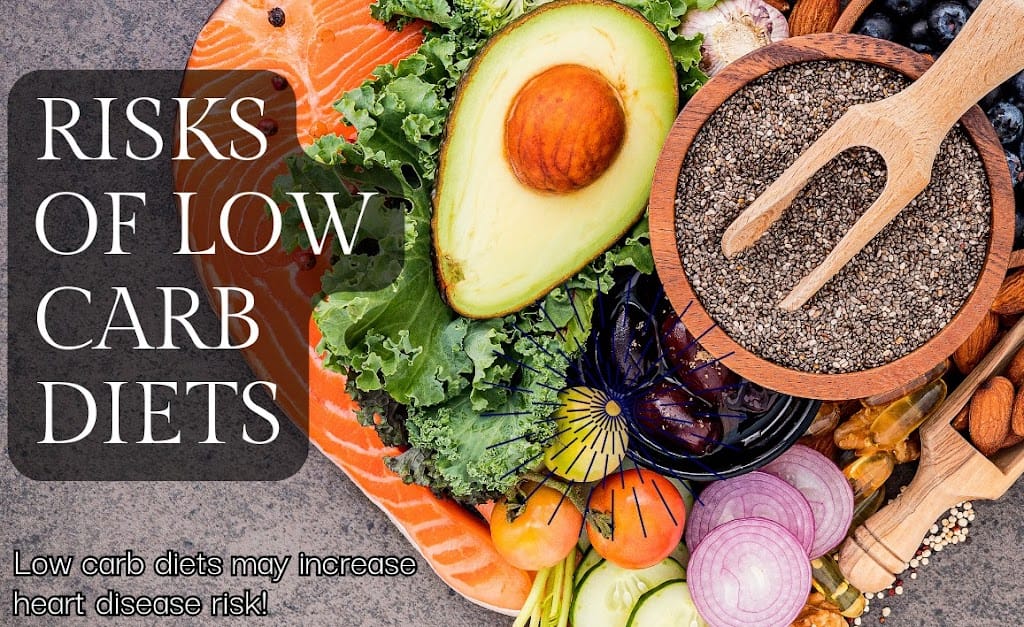Digestive health is crucial for overall well-being. It ensures proper nutrient absorption and waste elimination.
Maintaining digestive health involves a balanced diet, regular exercise, and adequate hydration. Consuming fiber-rich foods like fruits, vegetables, and whole grains supports digestive function. Probiotics, found in yogurt and fermented foods, promote gut health by balancing bacteria. Limiting processed foods, sugar, and excessive fats can prevent digestive issues.
Staying hydrated aids in digestion by facilitating nutrient absorption and waste removal. Regular physical activity stimulates intestinal muscles, promoting efficient digestion. Avoiding stress and eating mindfully also contribute to better digestive health. Simple lifestyle changes can significantly improve digestive function, leading to enhanced overall health and well-being.
Introduction To Digestive Wellness
A healthy digestive system helps your body absorb nutrients. It keeps your energy levels high. It also removes waste efficiently. Poor digestion can cause discomfort. It can lead to serious health problems.
Good digestion supports your immune system. It improves your mood and mental health. It keeps your skin healthy. Eating a balanced diet helps. Drinking plenty of water is also important.
Gut health affects your whole body. A happy gut means a happy mind. It can reduce anxiety and depression. Good bacteria in your gut fight off bad bacteria. This keeps you from getting sick.
Exercise improves your digestion. It keeps your gut healthy. Sleeping well also helps. Your gut needs rest to function well. Avoiding stress is important too.

Decoding The Gut Microbiome
Gut bacteria help break down food. They produce enzymes to digest complex carbs. These bacteria also make vitamins like B12 and K. They play a key role in nutrient absorption.
Good microbes keep the gut healthy. They fight off harmful bacteria. A balanced gut means better digestion. Bad microbes can cause issues like gas and bloating. Eating fiber-rich foods helps balance the gut. Probiotics also support good bacteria.
Signs Of An Unhappy Gut
Common digestive problems include bloating, gas, and constipation. Many people also experience diarrhea and stomach pain. These issues can make daily life hard. Food intolerances are another common problem. They can cause discomfort and inflammation. Acid reflux is also a sign of an unhappy gut. This happens when stomach acid moves up into the esophagus.
Seek medical advice if digestive issues last more than a few days. Severe pain or bleeding needs immediate attention. Unexplained weight loss is also a concern. Persistent vomiting can lead to dehydration. Long-term changes in bowel habits should not be ignored. Doctors can run tests to find the problem. Early diagnosis helps in effective treatment.
The 15 Ways to Improve Your Digestive Health
1) The Importance of Well-Cooked and Warm Food
- Consuming well-cooked food ensures that the nutrients are easily absorbed by our bodies.
- Warm food aids digestion by stimulating the production of digestive enzymes.
- Opt for steaming, baking, or boiling methods of cooking to preserve the nutritional value of the food.
2) Choosing Whole Wheat and Rice
- Whole wheat and rice provide essential dietary fiber that aids in proper digestion.
- These unprocessed grains promote regular bowel movements and prevent constipation.
- Avoid refined and polished versions of wheat and rice, as they lack essential nutrients.
3) Minimizing the Use of Fine Flour and Polished Rice
- Fine flour and polished rice have undergone extensive processing, resulting in reduced nutritional value.
- These processed grains may lead to digestive issues such as bloating and gas.
- Replace them with whole grain alternatives for better digestive health.

4) Reducing the Consumption of Fried Foods
- Fried foods are often high in unhealthy fats and can lead to digestive discomfort.
- Excessive consumption of fried food may contribute to weight gain and digestive disorders.
- Opt for healthier cooking methods such as baking, grilling, or sautéing.
5) Incorporating Buttermilk and Curd in the Diet
- Buttermilk and curd are probiotic-rich foods that promote a healthy gut microbiome.
- Probiotics aid in digestion and help maintain a balanced digestive system.
- Include these fermented dairy products in your diet for improved digestive health.
6) Emphasizing the Consumption of Vegetables and Seasonal Fruits
- Vegetables and fruits provide essential vitamins, minerals, and fiber necessary for proper digestion.
- Raw and cooked vegetables offer different benefits, so include a variety in your meals.
- Seasonal fruits offer natural enzymes and nourishment, aiding in digestion.
7) The Importance of Proper Chewing
- Chewing food thoroughly promotes the release of digestive enzymes in the mouth.
- Adequate chewing breaks down food into smaller particles, facilitating better digestion.
- Take the time to savor each bite and chew food properly for optimal digestion.
.jpg)
8) Maintaining a Proper Meal Gap
- Allow a gap of 5 to 7 hours between meals to give your digestive system ample time to process the food.
- Avoid eating or drinking any liquids (except water or buttermilk) between meals.
- This gap allows your digestive system to rest and function more efficiently.
9) Giving the Stomach Adequate Rest
- Just like any other machine, the stomach also requires rest for optimal functioning.
- Consider taking one or two meals a week consisting only of fruits, fruit juices, or boiled water.
- This rest period allows the digestive system to rejuvenate and aids in detoxification.
10) Tuning in to Nature’s Signals
- Nature provides subtle signals to indicate fullness, such as belching or feeling satisfied.
- Respect these signals and avoid overeating, as it can strain the digestive system.
- Overeating beyond these signals can lead to digestive discomfort and other health issues.
11) Adapting to Seasonal Changes
- Our dietary needs vary with each season, and it’s important to adjust our food choices accordingly.
- Incorporate seasonal fruits and vegetables to benefit from their natural nutritional profile.
- Aligning our diet with nature’s cycles supports optimal digestive health.
12) Preserving the Digestive Fire
- The digestive fire in our stomach plays a crucial role in breaking down food.
- Enhance this fire by incorporating ginger, pepper, and bitter-tasting foods into your diet.
- Regular exercise and exposure to sunlight (sunbath) also contribute to maintaining a healthy digestive fire.
13) Avoiding Cold Water and Cold Drinks
- Cold water and cold drinks can weaken the digestive fire and hinder proper digestion.
- These icy beverages put an additional burden on the digestive system.
- Opt for warm or room temperature water to support efficient digestion.

14) The Benefits of Sprouted Pulses
- Sprouted pulses provide a nutritious and easily digestible source of protein.
- Mix sprouted pulses with sesame, groundnut, raw cabbage, or jaggery for added flavor and benefits.
- However, for those aiming to reduce weight, it is advisable to avoid dates, dried grapes, or jaggery in this combination.
15) Recognizing the Signs of Proper Digestion
- After a meal, you should feel energetic, light in body, and capable of engaging in physical activities.
- Feeling heavy, sleepy, or dull may indicate overeating, fast eating, or a weakened digestive system.
- Pay attention to these signs to make necessary adjustments to your eating habits.
Nutritional Building Blocks For Gut Health
Yogurt is rich in probiotics that help balance gut bacteria. Kefir is another good option for probiotics. Whole grains provide fiber which aids digestion. Fruits like apples and bananas are high in fiber and pectin. Ginger helps reduce nausea and improves stomach motility. Leafy greens like spinach offer magnesium, aiding muscle function in the gut.
Processed foods often lack nutrients and contain preservatives. High-fat foods can slow down the digestive process. Spicy foods may irritate the stomach lining. Artificial sweeteners can cause bloating and gas. Carbonated drinks may increase stomach acid. Excessive caffeine can lead to acid reflux.
The Power Of Probiotics And Prebiotics
Probiotics are good bacteria that help our gut. They live in our intestines. Yogurt and kefir are great sources. Fermented foods like sauerkraut and kimchi also have probiotics. These foods help balance the bacteria in our gut. Better digestion and a strong immune system are benefits. Some studies show they can help with diarrhea and constipation. Probiotics can also reduce bloating and gas. They are good for our overall health.
Prebiotics are food for the good bacteria. They help probiotics grow. Bananas and onions are rich in prebiotics. Garlic and leeks also have prebiotics. Whole grains are another good source. Prebiotics help improve digestion. They can boost your gut health. Some people find they have more energy. Others notice less bloating. Eating prebiotics can make your stomach feel better.
Hydration And Digestive Function
Proper hydration supports digestive health by aiding nutrient absorption and maintaining bowel regularity. Drinking sufficient water helps prevent constipation and promotes a healthy gut environment.
Water’s Role In Digestive Health
Water helps break down food so your body can absorb nutrients. It keeps the digestive system moving smoothly. Drinking enough water helps prevent constipation. Water softens the stool, making it easier to pass. It also helps the intestines remove waste more efficiently.
How Much Water Should You Drink?
Most people should drink about eight 8-ounce glasses of water a day. This is roughly 2 liters or half a gallon. Your needs might be different if you are very active. Some foods like fruits and vegetables also contain water. Make sure to drink more water if you eat less of these.
Lifestyle Adjustments For Digestive Comfort
Exercise helps your gut by keeping food moving through your digestive system. Regular physical activity can reduce symptoms of constipation. Exercise also reduces bloating and improves gut motility. Even walking for 30 minutes a day can make a difference. Physical activity also helps you maintain a healthy weight. A balanced weight supports overall digestive health. Exercise can also lower stress levels, which benefits your gut.
Stress affects your digestion by slowing it down or speeding it up. High stress levels can cause stomach pain and bloating. Stress also affects the balance of bacteria in your gut. This can lead to digestive issues. Relaxation techniques like deep breathing can help. Mindfulness and meditation are also useful. Keeping stress levels low is important for a healthy digestive system.
Understanding And Managing Food Sensitivities
Food sensitivities can cause discomfort. Common symptoms include bloating, gas, and stomach pain. Keeping a food diary helps to identify trigger foods. Note what you eat and how you feel after. Elimination diets can also help. Remove suspected foods from your diet. Gradually reintroduce them and watch for reactions.
Food allergies are different from intolerances. Allergies involve the immune system. Symptoms can be severe and include hives and breathing problems. Food intolerances mostly affect the digestive system. Lactose intolerance is a common example. Reading food labels is very important. Avoiding cross-contamination can prevent allergic reactions. Consult a doctor for severe symptoms.
The Future Of Digestive Health
New studies show exciting developments in digestive health. Scientists are discovering new ways to treat gut problems. Probiotics and prebiotics are getting more attention. They help balance the good and bad bacteria in our gut. Advanced technologies now allow us to study the gut in more detail. This means better treatments and healthier lives.
Personalized gut health is becoming a trend. Doctors and nutritionists can now create custom plans for each person. DNA tests help find the best foods for your gut. New apps can track your diet and give advice. This means you can have a healthier gut and feel better every day.
Conclusion: Embracing A Gut-friendly Lifestyle
Prioritizing digestive health boosts overall well-being and energy levels. Adopt a gut-friendly lifestyle for a happier, healthier you.
Key Takeaways For Maintaining A Happy Gut
Eat a balanced diet with lots of fruits and vegetables. Drink plenty of water every day. Avoid processed foods and sugary drinks. Include probiotics and fiber in your meals. Exercise regularly to keep your digestive system active. Stay stress-free as stress can affect your gut health. Get enough sleep to help your body recover. Do not skip meals and eat at regular intervals. Listen to your body and seek medical advice if needed.
Continuing Your Gut Health Journey
Track your food intake in a journal. Monitor how foods affect your digestion. Try new recipes that are gut-friendly. Share your journey with friends and family. Join groups that focus on digestive health. Stay informed by reading reliable sources. Make small changes and celebrate your progress. Your gut health journey is a lifelong commitment.
Frequently Asked Questions
How Do I Improve My Digestive Health?
Eat a balanced diet rich in fiber, fruits, and vegetables. Stay hydrated. Exercise regularly. Avoid processed foods. Manage stress effectively.
How Do I Repair My Digestive System?
Improve your digestive health by eating a balanced diet rich in fiber. Stay hydrated, exercise regularly, and manage stress. Avoid processed foods and eat smaller, frequent meals. Consider probiotics for gut health. Consult a doctor for persistent issues.
What Is The Best Thing To Take For Digestive Health?
Probiotics, fiber-rich foods, and staying hydrated support digestive health. Yogurt, whole grains, fruits, and vegetables are excellent choices.
What Is The Meaning Of Digestive Health?
Digestive health refers to the optimal functioning of the digestive system, ensuring efficient digestion, nutrient absorption, and waste elimination. Maintaining digestive health involves a balanced diet, regular exercise, hydration, and managing stress. Good digestive health prevents issues like bloating, constipation, and indigestion.
Conclusion
A healthy digestive system is crucial for overall well-being. Prioritize fiber, hydration, and balanced nutrition in your diet. Regular exercise and stress management also play key roles. By making these small changes, you can significantly improve your digestive health and quality of life.
Start today for a healthier tomorrow.



